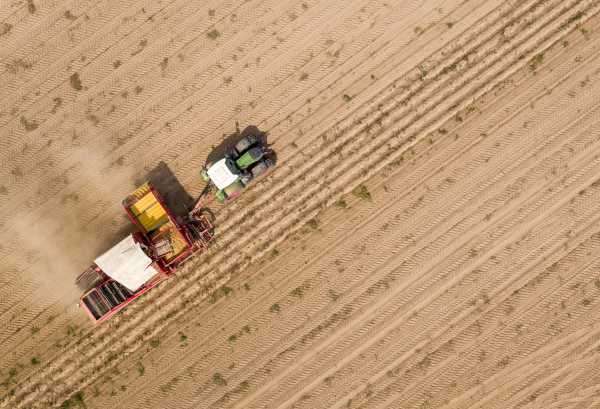
The latest installment from the United Nations’ Intergovernmental Panel on Climate Change spells out in nearly 3,700 pages the effects of climate change that are well underway. At least 3.3 billion today are highly vulnerable to climate impacts like dangerous heat, food scarcity and drought, and increased rates of illness and death. The risks for humans and nature will only grow worse the longer governments and companies wait to drastically cut emissions and implement adaptation measures.
A person or community’s vulnerability is shaped by all kinds of wealth, politics, identity, and gender dynamics. The hard sciences and traditional climate modeling typically fall short when it comes to incorporating these factors. Now in the sixth report cycle, the IPCC Working Group II includes far more economic and social research that subtly shifts the focus of much of the report — for the first time, the IPCC discusses colonization as a root cause of climate instability, and it is unequivocal that inequality heightens climate risks.
Related
Climate change is already making parts of the world unlivable
Edward Carr, a US geographer with Clark University, says these changes reflect how qualitative research has exploded since the IPCC last looked at climate adaptation in 2014. Carr is a lead author on chapter 18 of the report, which examines the social and political dimensions of responding to climate change. Most of Carr’s work outside the IPCC has taken him and his international development lab to countries in sub-Saharan Africa to report how climate change is affecting farmers and how gender changes climate risk, drawing on interviews and direct observation to capture people’s experiences.
In an interview with Vox, he explained how the new report pulls from local and Indigenous knowledge, along with anthropological research and other forms of social science, to show that the way we adapt to climate change can’t be a one-size-fits-all approach. This interview has been edited for length and clarity.
As an anthropologist and IPCC author, what gaps in climate science does your field of research try to address?
There are going to be certain situations we can’t just throw money at or build infrastructure for. We’re going to have to make decisions about what we want to preserve and what we’re willing to give away, what’s essential to us, and what do we keep? That’s a social choice and that’s a political choice. Our political systems, the way that we interact with each other, and the way that we identify problems and solutions — all of that becomes central to how we will function in the face of climate change.
We can’t say to people, “here are the transformations that need to happen.” That really drills down to who I’m talking to, where they live, and what’s going on around them.
My work, for example, outside the IPCC, focuses at the intra-household level, recognizing that climate change impacts play out differently for men and women in the same household in some parts of sub-Saharan Africa certainly, even within small communities.
That level of granularity is incredibly important for our findings, because it helps us understand who is being impacted, what kinds of solutions are needed for different people, and who’s going to benefit from the sorts of solutions that we’re putting into place.
The chapter you were lead author on references the need for more access to weather and climate forecasting for farmers. It sounds pretty straightforward. Is it?
You can’t talk about the users of weather and climate information in a big lump. You actually have to understand that there are different users. Maybe it’s men and women, maybe it’s wealthy and poor, maybe it’s a combination of those different identities that really matters.
You would think that just giving people seasonal forecasts would help everyone. But the seasonal forecast tends to speak to certain crops, not all crops. So who are you actually helping when you provide that forecast?
In Sahelian West Africa, there are seasonal forecasts for rain-fed crops. That’s typically men’s production. Women are usually doing irrigated garden crops — in other words, they’re digging deep wells and hand-watering crops. You can improve the seasonal forecast all day — that doesn’t necessarily help women’s production at all. You’re just bolstering men’s production. Given that men tend to be in charge of households that’s also not a pathway towards a gender empowerment, which we know is a critical tool for achieving development goals.
Agriculture comes up a lot in this report — the report basically says climate change will increase food insecurity because of things like ocean acidification, salt intrusion, and increased drought. How does wealth and inequality factor into these challenges?
Climate-smart agriculture is a topic that shows up a lot in this report — how agriculture will adapt. Seed technology, for example: Often men and women or different ethnicities or different folks within the community are growing different kinds of products. So which seeds are the ones that are being supplied to folks? How do those new seeds fit into larger systems that people live in? Because often, engineered seeds need a lot of different inputs: Are those inputs available? Who can afford them? That’s where wealth often kicks in.
You can make the seeds widely available, but if it requires fertilizer and pesticides that people can’t access, you’ve just differentially benefited a bunch of wealthy people, and maybe not done much of anything for the poorest folks.
There’s another area the IPCC warns about “maladaptation,” which I take to mean ways we adapt to climate change that actually makes problems worse. What’s an example of maladaptation?
In the North American context one of the clear examples is constructing things like seawalls. You can protect whoever’s right behind that seawall. However, seawalls tend to displace whatever the problem is on to somebody else who doesn’t have a seawall.
[Another chapter of the report references a] former student of mine, Kwame Owusu-Daaku, who is Ghanian, was looking at sea defense systems that was being put in by Ghana, and it worked really well to protect this area from beach erosion. The problem is, then that area became very valuable and potentially developable for tourists, and it led to the displacement of a local community because the beach was now safe and not being eroded. So people came in and basically bought the land out from under them. The external investors did great, but this community found itself without the land it used to have.
What are the areas that social science research should address next?
It goes all the way down to really nuanced things.
We’re still not great at knowing, for example, the gendered value of weather and climate information in different places. Let alone all the other kinds of social differentiation that we’re dealing with.
The report says this: We need to get a lot better at monitoring, evaluating, and learning about what works in adaptation and what does not. We’ve been very good at monitoring where we’ve spent money. We’ve spent much less time looking at the impact of that because it’s much harder to do that work.
I would expect before the next assessment report we are going to see a real explosion of work in that area.
Bottom-line, what would you like the public to take from this report?
We’ve waited too long on climate action. And at this point, getting to a climate-resilient future where we can maximize the opportunity, safety, health, and the well-being of the maximum number of people is not going to happen through incremental steps. Those pathways are largely gone to us at this point. We’re looking at transformative changes to how we live in the world.
The choice at hand is do we transform and make specific choices about how that happens? Or do we get transformed by a world that is changing because of our prior actions? I can’t emphasize how important that distinction is. Because really, that’s what we’re faced with. But the longer we wait, the fewer transformative options we’re going to have. And soon we’re going to be making less-good choices, because they’re going to get more expensive and be less effective.
We still need to act urgently here. The good news is there’s lots of options for that. But it’s quite clear from the literature at this point that incremental change is not going to work.
Will you support Vox’s explanatory journalism?
Millions turn to Vox to understand what’s happening in the news. Our mission has never been more vital than it is in this moment: to empower through understanding. Financial contributions from our readers are a critical part of supporting our resource-intensive work and help us keep our journalism free for all. Please consider making a contribution to Vox today.
Sourse: vox.com






